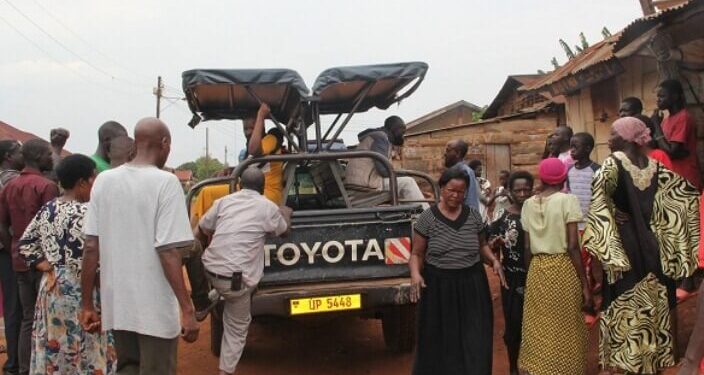Two brothers, Posiano Ndyamuhaki and John Murokozi, in Rukungiri District, have been arrested on murder charges following the death of Gideon Kakuru, a 24-year-old man known as Hakizimana Kaboy. The incident occurred at 3 am on Sunday in Kanyankyende cell, Nyabitete parish, Bugangari Sub-County. The suspects’ sister, Justine Nsimire, has also been detained for further questioning.
On the evening of July 26, 2025, Ndyamuhaki and Murokozi were at their sister’s bar in Kanyankyende trading centre, alongside other patrons, including Kakuru, who was Nsimire’s lover. A dispute arose when Kakuru attempted to engage in intimate behavior with Nsimire at the bar, which the brothers opposed.
The disagreement escalated, leading the brothers to attack and assault Kakuru, leaving him unconscious by the roadside. The local LCI chairperson, Wilber Habaasa, was alerted and attempted to transport Kakuru to a hospital, but he died en route. The case was reported to the Bugangari police post, prompting the arrests to aid ongoing investigations.
Police records indicate that Rukungiri District has seen a surge in violent crimes, with eight murder cases reported since July 1, 2025. In comparison, Kabale District recorded four cases, and Rubanda District reported two in the same period. This alarming trend highlights a growing concern in the region, where economic and social challenges appear to fuel such incidents.
The Rukungiri District community development officer, Posias Agaba, pointed to poverty, particularly among unemployed youth, as a primary driver of the increased murder cases. Many young people, facing financial hardship, resort to seeking handouts from family members, which can lead to tensions and conflicts.
Additional factors contributing to the violence include land disputes, widespread alcoholism, drug abuse, and the rising cost of living, which places significant strain on communities. These issues exacerbate frustrations and often result in violent outbursts, as seen in the tragic case of Kakuru’s death.
To address these challenges, local authorities have initiated community sensitization efforts through FM radio programs and talk shows to educate residents about the dangers of these contributing factors. These programs aim to raise awareness and promote conflict resolution to reduce violence.
However, efforts to conduct face-to-face sensitization meetings at the sub-county and parish levels have been hindered by insufficient funding, which limits the reach and impact of these initiatives. Agaba emphasized the need for increased resources to expand these programs and tackle the root causes of violence more effectively.
The arrests of Ndyamuhaki, Murokozi, and Nsimire mark a critical step in the investigation into Kakuru’s death, but they also underscore broader societal issues in Rukungiri District. The police continue to probe the circumstances surrounding the incident, seeking to understand the motivations and events that led to the fatal assault.
As the community grapples with this tragedy, local leaders are calling for collaborative efforts to address poverty, substance abuse, and other underlying factors driving the region’s murder rate. Without targeted interventions and adequate support, the cycle of violence risks persisting, further endangering lives and destabilizing communities.








